
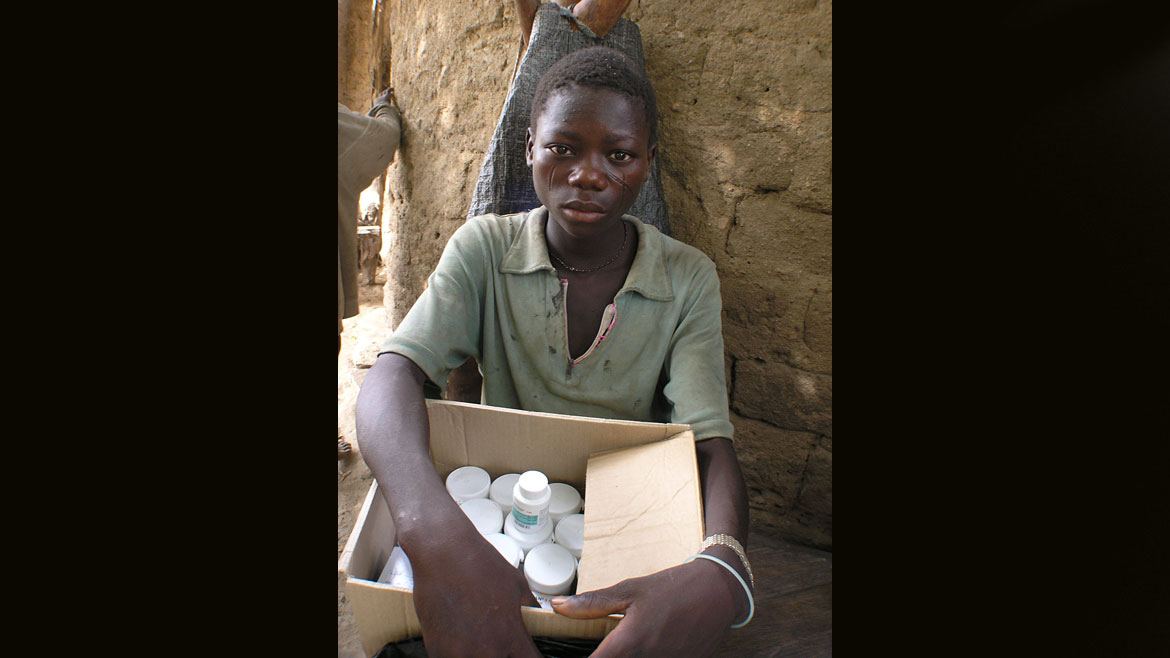
Since 1996, The Carter Center’s River Blindness Program has assisted in the delivery of more than 100 million treatments of Mectizan® (donated by Merck Inc.) and conducted health education in 11 endemic countries in Latin America and Africa. The Center is leading the drive to eliminate this blinding parasitic disease where it occurs in the Americas by 2015. (All photos: The Carter Center) (2007)
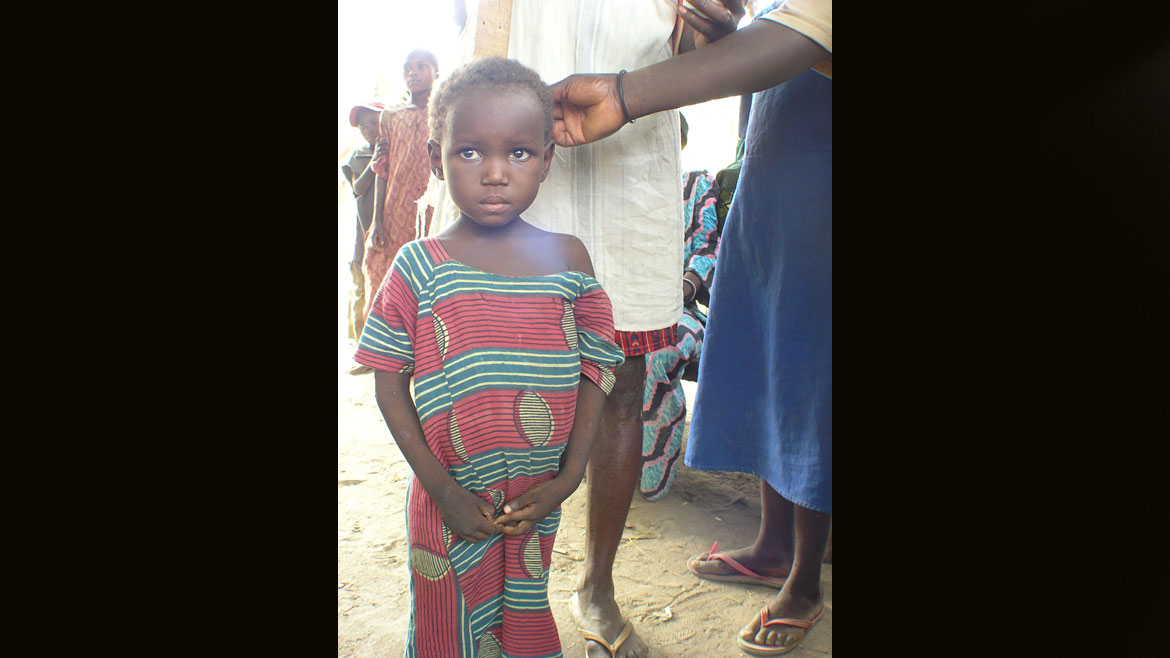
In Somji, Nigeria a young child stands in line anxiously waiting to have her height measured as some 20 million others do in Nigeria each year.
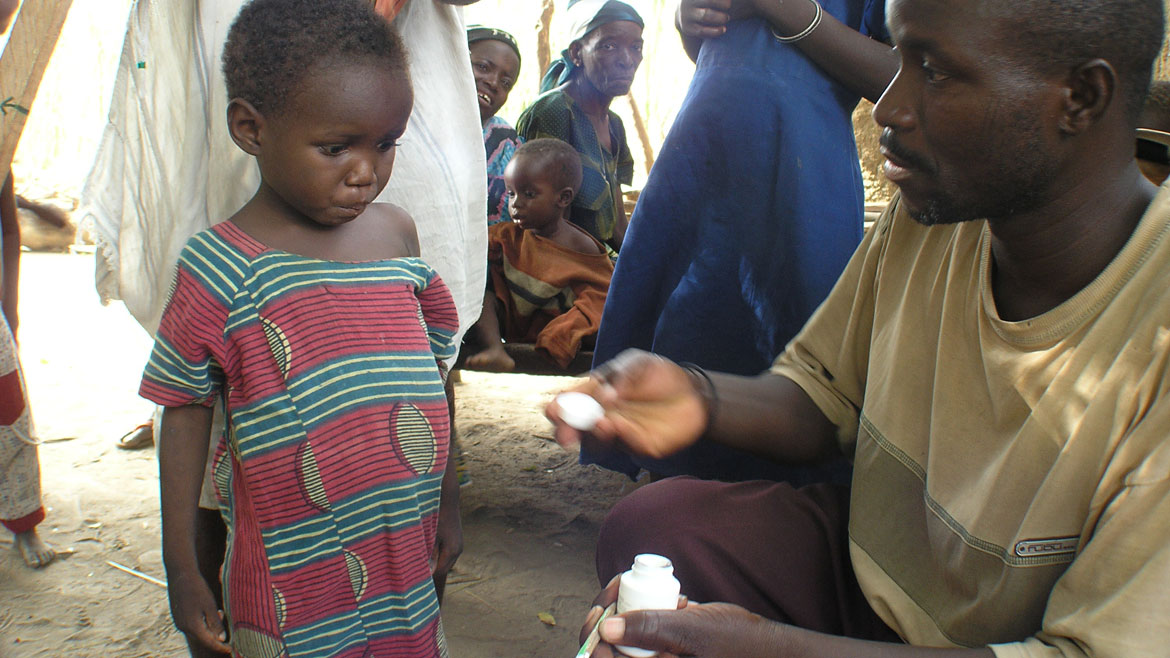
When she reaches the front, a health worker gives her an annual dose of a white pill called Mectizan®, generously donated by Merck Inc.
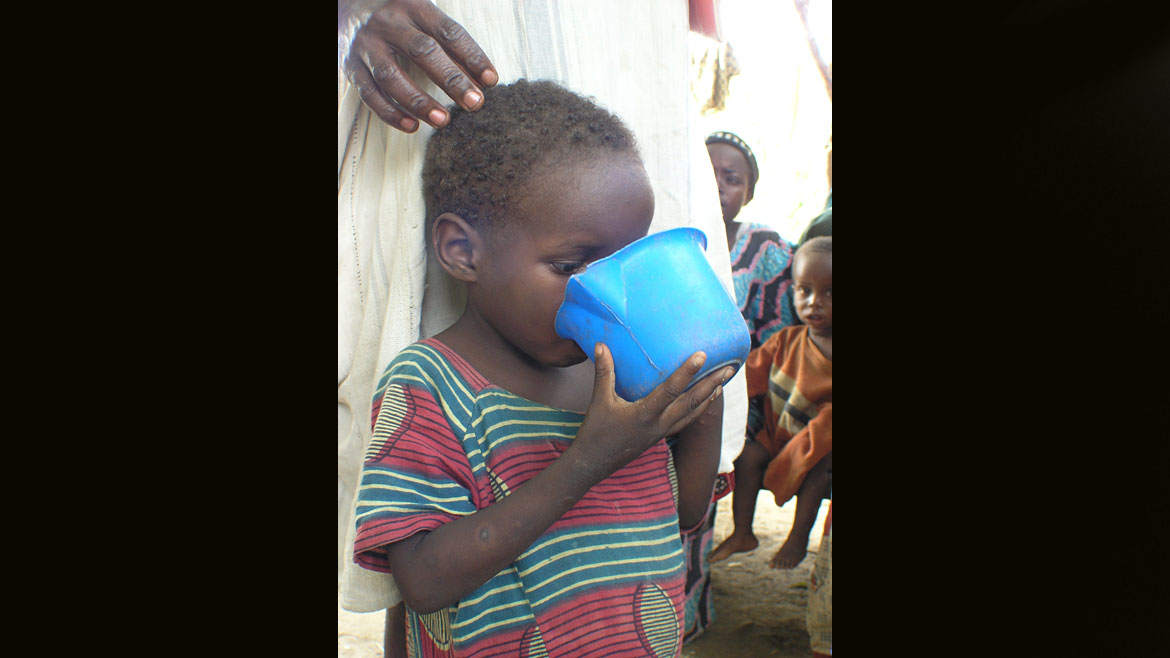
In Somji, Nigeria, and other rural areas of Nigeria, an annual dose of sight-saving Mecitzan® is often considered more precious than a diamond. The donated treatment will prevent this little girl from a parasitic disease known as river blindness. The parasitic disease is spread by infected black flies through hundreds of bites over a period of years. Once infected with river blindness, a person may experience intense itching, skin discoloration, rashes, and if left untreated, permanent blindness.
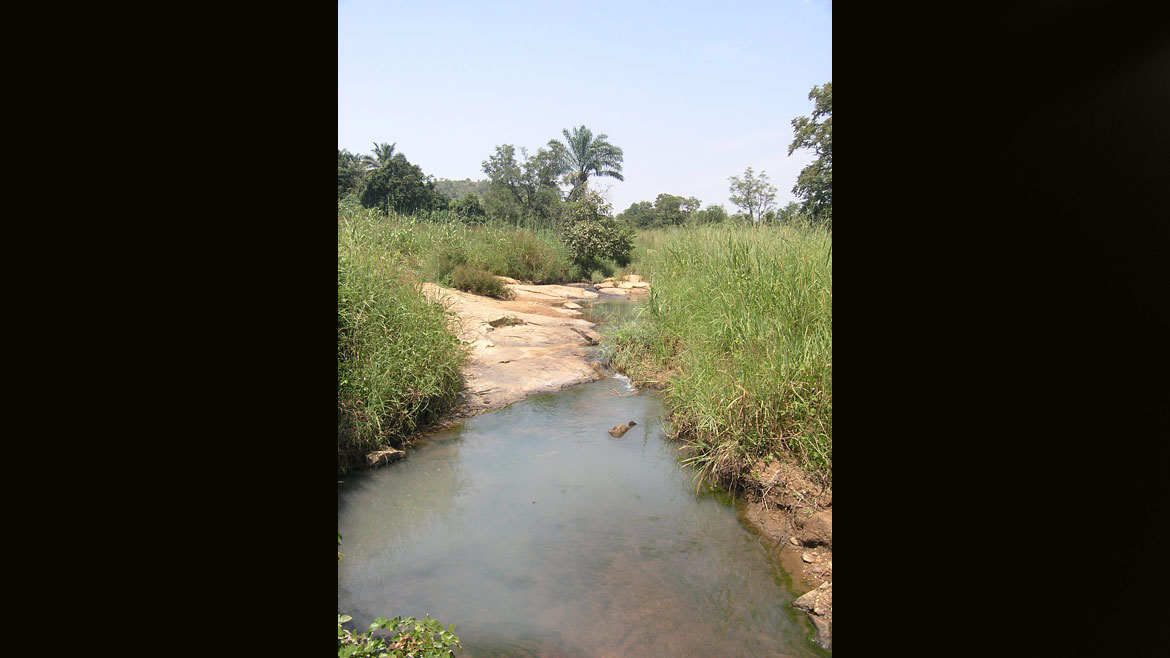
Fast flowing rivers such as this breed thousands of little black flies that spread the disease. Rivers are abundant in Nigeria, where 40 percent of the 17.7 million worldwide cases of river blindness occur.
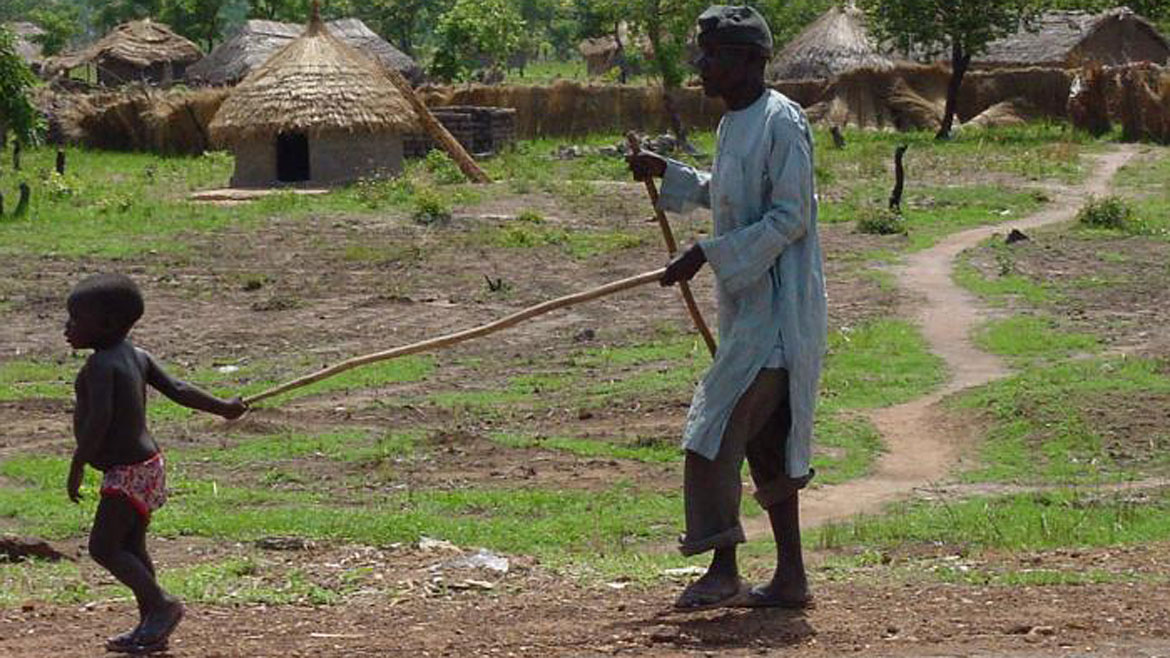
In 1987, The Carter Center became involved in the effort to control river blindness by becoming an advocate for the Mectizan® Donation Program launched that year by Merck Inc. In 1996, The Carter Center expanded its role to combat river blindness by absorbing the River Blindness Foundation. Today, the Carter Center’s program assists ministries of health in 11 endemic countries in Latin America and Africa to help residents and local health workers institute and sustain Mectizan® treatment and health education activities.
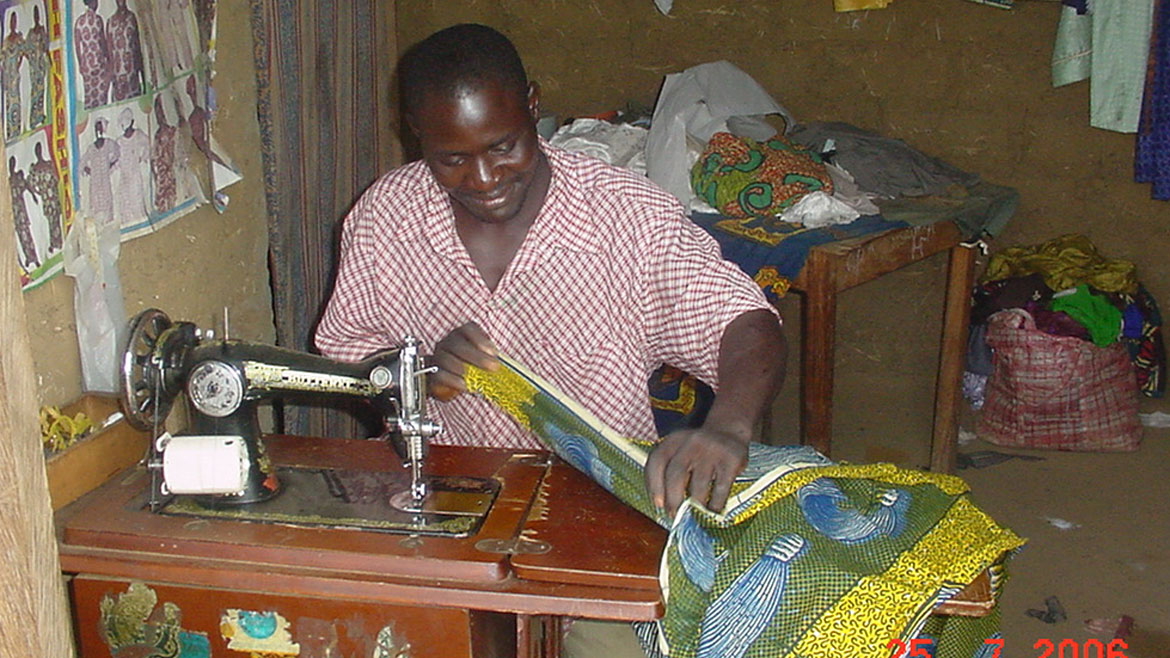
It is estimated that 27 million Nigerians need treatment to prevent the onset of permanent blindness each year. Although the disease is not fatal, outbreaks can severely impact the economy of endemic villages and communities. Because of its debilitating effects, sufferers often cannot continue their jobs, and children are often unable to continue their education.
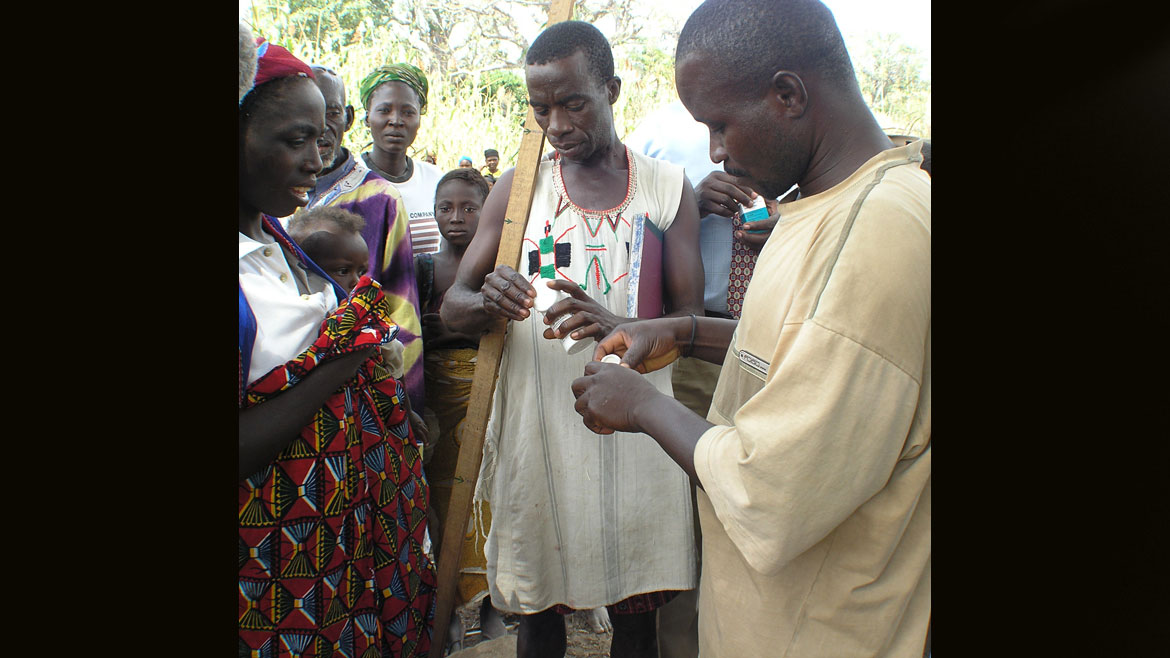
The Carter Center-assisted River Blindness Program works through partnerships at all levels to control river blindness so people can continue their daily lives unhindered by the effects of the disease. In collaboration with the ministry of health, the program works directly with people in afflicted communities in Africa, who organize themselves and volunteer their time to distribute Mectizan®.
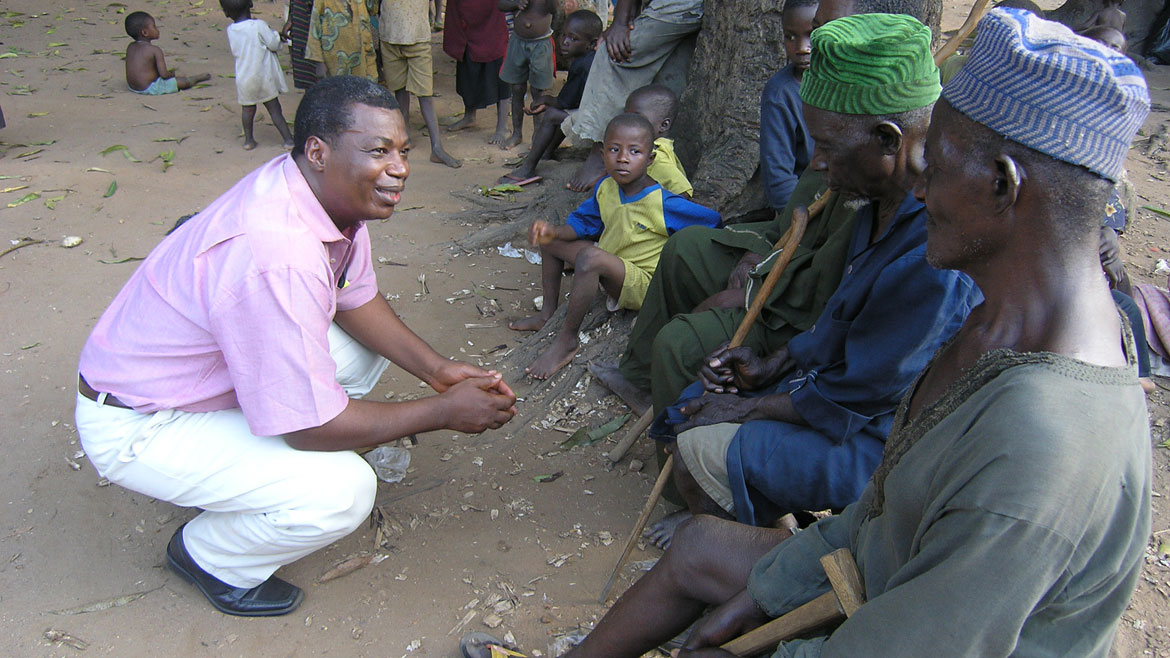
Program directors often visit communities to observe drug distribution and health education activities. Above, the Carter Center’s Dr. Abel Eigege (left) speaks with men suffering from river blindness in the Nigerian village of Kambre about how Mectizan® can control infection and improve vision.
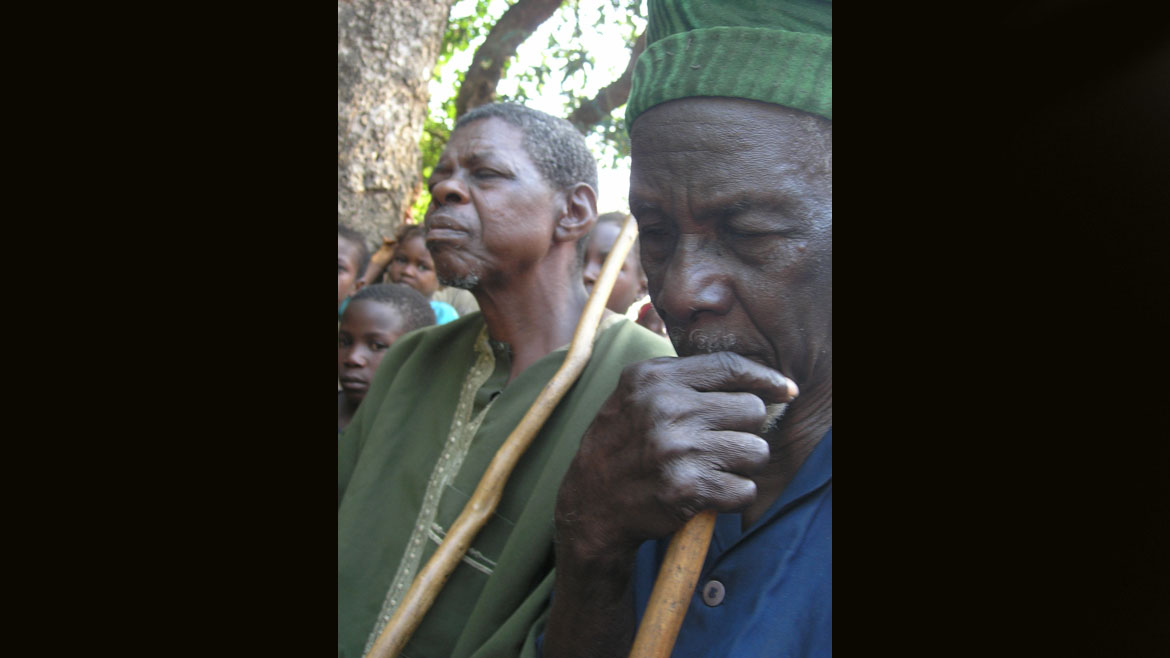
The Carter Center River Blindness Program works to ensure that future generations will never be blinded by the preventable infection.
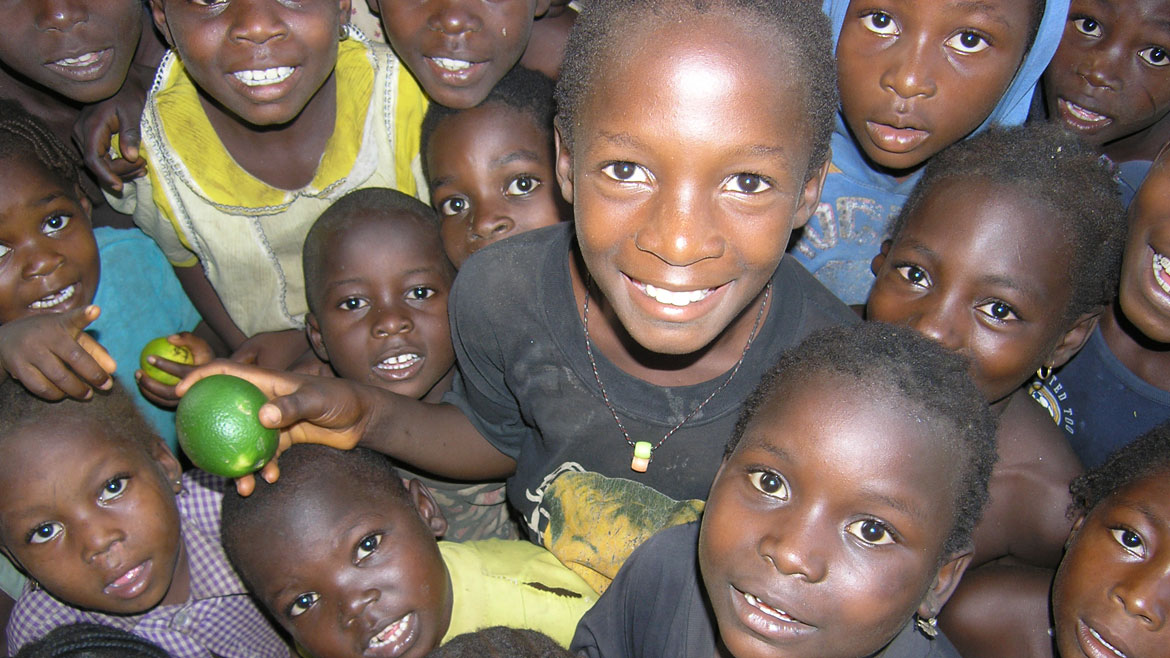
Thanks to the Carter Center’s efforts to control river blindness, these Nigerian children and the more than 10 million people treated each year by the River Blindness Program have the promise of a much brighter future.
